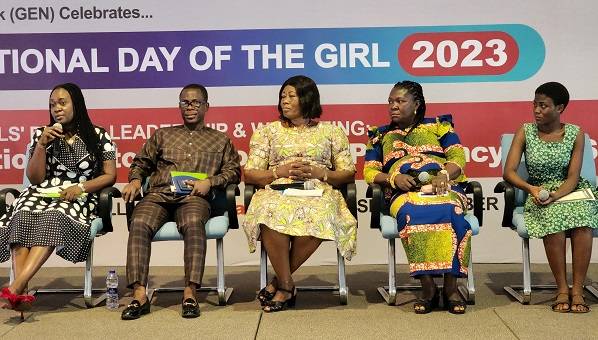
The Girls Education Network (GEN) of the Ghana Education Service (GES) yesterday marked the International Day of Girls with an assurance that the government will continue to implement measures to increase the enrollment of girls in schools.
This, according to the Director, Pre-Tertiary Education Nana Baffour Awuah, was necessary because education breaks cycles of poverty and contributes significantly to economic development.
October 11 of each year has been set aside globally to recognise girls’ rights and the unique challenges girls face around the world.
It focuses attention on the need to promote girls’ empowerment and the fulfilment of their human rights.
The global theme for this year is “Invest in girls’ rights: Our leadership, our wellbeing”.
Mr Awuah stated that while creating an enabling environment for young girls to thrive, it was very necessary to coach them on the need to remain focused on their studies and desist from engaging in acts that could hinder their progress.
“Ghana has the interests of young girls at heart that is why we are doing all we can to ensure that all obstacles that hinder girls’ education are removed. Not even pregnancy should prevent any girl from schooling.”
“However school girls also have various roles to play to go through their education successfully like being punctual, studying hard and avoiding sexual immorality. The GES is doing well to support you so play your part to achieve your dreams,” he added.
Former Director, Girls Education Unit, GES, Mrs Benedicta Tenni Seidu, speaking on GES’ theme for this year’s International Girls’ Day celebration “Adopting Pregnancy and Schooling in Ghana: The Education Sector’s Response”, said pregnancy should never be the reason why school girls should drop out of school.
She also advised teachers and heads of schools to help end discrimination against pregnant school girls, adding that frequently creating awareness about the consequences of teenage pregnancy would help reduce such occurrences.
On her part, a professional officer for culture, UNESCO, Ghana, Ms Magdalene Hanna, said there was the need to consistently address the root causes of educational disparities, including social norms that perpetuated gender discrimination, economic barriers that hinder access to education and structural inequalities that perpetuate these disparities.
She urged the public to champion girls’ empowerment and education while working together to build “a Ghana where every girl can live from violence, attend and complete school and achieve her dreams.”
“Let us commit to ensuring that girls’ rights, wellbeing and empowerment remain at the forefront of our efforts as we strive towards achieving the Sustainable Development Goals (SDGs). The future of Ghana depends on our girls and it is our collective responsibility to ensure they are equipped with the opportunities they need to succeed,” she added.
BY RAISSA SAMBOU







